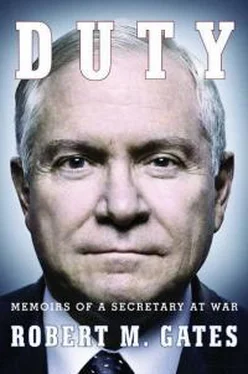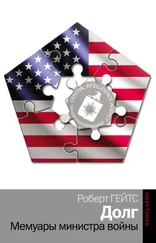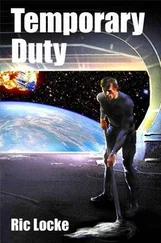There will always be a special place in my heart for all those who served on the front lines in Iraq and Afghanistan, most in their twenties, some in their teens. I never imagined that I would be responsible for overseeing two wars and for seeing to the well-being of those fighting them. On each visit to the war zones, as I would go to joint security stations in Baghdad or even forward operating bases and combat outposts in Afghanistan, I knew I wasn’t being exposed to the true grim reality of our troops’ lives, and so I could not fully appreciate what those in the fight endured daily. But I saw enough. My imagination—and all those lunches with young troops—filled in the blanks. And I could only contrast their selfless service and sacrifice with so many self-serving elected and nonelected officials back home.
When I was asked in October 2006 if I would be willing to serve as secretary, I said that because all of those kids out there were doing their duty, I had no choice but to do mine. The troops were the reason I took the job, and they became the reason I stayed. Being called “the soldiers’ secretary” because I cared so much about them was the highest compliment imaginable. I never, for one moment, forgot that tearful mother’s plea in the hotel restaurant before my confirmation hearings: “For God’s sake, bring them back alive.” That plea drove me, just as the troops inspired me. When I was at my lowest, they lifted me up.
I came to believe that no one who had actually been in combat could walk away without scars, some measure of post-traumatic stress. And while those I visited in the hospitals put on a brave front for me, in my mind’s eye I could see them lying awake, alone, in the hours before dawn, confronting their pain and their broken dreams and shattered lives. I would wake in the night, think back to a wounded soldier or Marine I had seen at Landstuhl, Bethesda, or Walter Reed, and in my imagination, I would put myself in his hospital room and I would hold him to my chest, to comfort him. Silently, in the night at home, I would weep for him. And so my answer to the young soldier’s question in Afghanistan about what kept me awake at night: he did.
I always assumed that my predecessors during wartime felt every bit as deeply as I did about the men and women on the front lines, the wounded, the fallen, and their families. But ironically, the scale of earlier wars—World War II, Korea, and Vietnam in the last eight decades—and the number of wounded and killed in those conflicts precluded my wartime predecessors from establishing the kind of personal connection to the troops or to their families that became so important to me. When 1,000 young Americans were being killed every month in Vietnam, reading hometown news coverage of each casualty and handwriting condolence letters were impossible. And so, perhaps because our losses were comparatively so much smaller than in previous wars, I could and did become emotionally bound to the troops.
During World War II, General George Marshall once told his wife, “I cannot afford the luxury of sentiment, mine must be cold logic. Sentiment is for others.” Icy detachment was never an option for me. Because of the nature of the two wars I oversaw, I could afford the luxury of sentiment, and at times, it overwhelmed me. Signing the deployment orders, visiting hospitals, writing the condolence letters, and attending the funerals at Arlington all were taking a growing emotional toll on me. Even thinking about the troops, I would lose my composure with increasing frequency. I realized I was beginning to regard protecting them—avoiding their sacrifice—as my highest priority. And I knew that this loss of objectivity meant it was time to leave.
The day before I stepped down as secretary, I sent a message to every man and woman wearing the American military uniform because I knew I could not speak to or about them at my farewell ceremony without breaking down. I repeated my now-familiar words: “Your countrymen owe you their freedom and their security. They sleep safely at night and pursue their dreams during the day because you stand the watch and protect them.… You are the best America has to offer. My admiration and affection for you is without limit, and I will think about you and your families and pray for you every day for the rest of my life. God bless you.”
I am eligible to be buried at Arlington National Cemetery. I have asked to be buried in Section 60, where so many of the fallen from Iraq and Afghanistan have been laid to rest. The greatest honor possible would be to rest among my heroes for all eternity.
Acknowledgments
Above all, I wish to thank President Bush and President Obama for their trust and confidence in asking me to serve as secretary of defense. It was the honor of a lifetime to serve my country and the two of them in that role. I dedicated this book to the men and women of the United States armed forces, and I thank them for inspiring me every day I was secretary. As I have written in these pages, they are the best America has to offer. I also want to thank General Pete Pace and Admiral Mike Mullen for their friendship and partnership throughout this adventure. It was a great blessing to have these two men by my side every day. I also could not have asked for more capable, professional, and personable colleagues than the service chiefs, combatant commanders, and field commanders with whom I was privileged to work. I want to express special appreciation to my senior military assistants Lieutenant General Gene Renuart, Lieutenant General Pete Chiarelli, Lieutenant General Dave “Rod” Rodriguez, Vice Admiral Joe Kernan, and Lieutenant General John Kelly. Each was a mentor and a friend.
I also want to thank the senior civilians in the Department of Defense: Deputy Secretaries Gordon England and Bill Lynn, the secretaries of the Army, Navy, and Air Force with whom I worked, and the undersecretaries and their career and appointed colleagues whose support, expertise, and counsel I relied upon every day. Words cannot adequately express my appreciation—and dependence upon—those in my immediate office, Robert Rangel and Delonnie Henry (who served four secretaries), Geoff Morrell, Ryan McCarthy, and Christian Marrone, and the NCOs who subtly but effectively managed us all.
In writing this book, I have relied on my personal papers and notes, as well as notes taken by my staff. Where I quote individuals in conversations or meetings, the source is either notes from one of my staff who was present or my own notes made during or immediately after the event.
I want to thank Robert Storer, chief of the Records and Declassification Division at the Pentagon, for his help in reviewing my classified documents, and to the commander and staff at Whidbey Island Naval Air Station for providing the facilities for that review. Appreciation is also due to Mike Rhodes, director of administration and management, and Mark Langerman, chief of the Office of Security Review, at the Defense Department for their professional and expeditious review of the manuscript and photographs.
I want to thank Staff Sergeant Tim Brown and First Lieutenant Dan Moran for permission to use their photographs.
I asked several people to review parts or all of the manuscript, and want to thank them for taking the time and effort to help me: Robert Rangel, Pete Chiarelli, Geoff Morrell, Thayer Scott, Ryan McCarthy, Steve Hadley, Eric Edelman, Michèle Flournoy, and Harry Rhoads. Obviously, responsibility for any errors or mistakes is mine alone.
Special thanks as well to Wayne Kabak of WSK Management, who began representing me twenty years ago and has become a close friend, adviser, and counselor. I also want to express heartfelt appreciation to Jonathan Segal of Alfred A. Knopf, a superb editor and guide. It has been a special pleasure working with him. I also want to thank Sonny Mehta, Paul Bogaards, Meghan Houser, Chip Kidd, Lisa Montebello, Cassandra Pappas, and Michelle Somers at Knopf for their important contributions to this book.
Читать дальше












